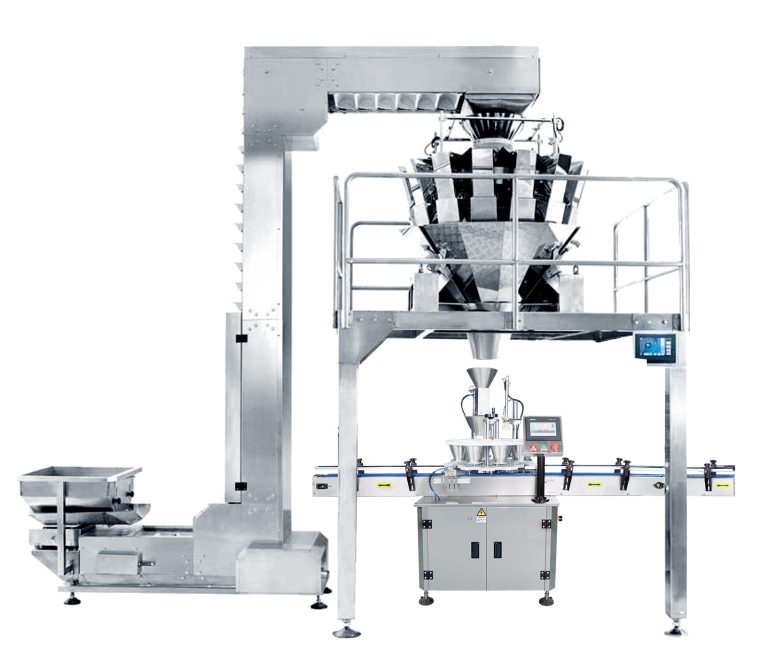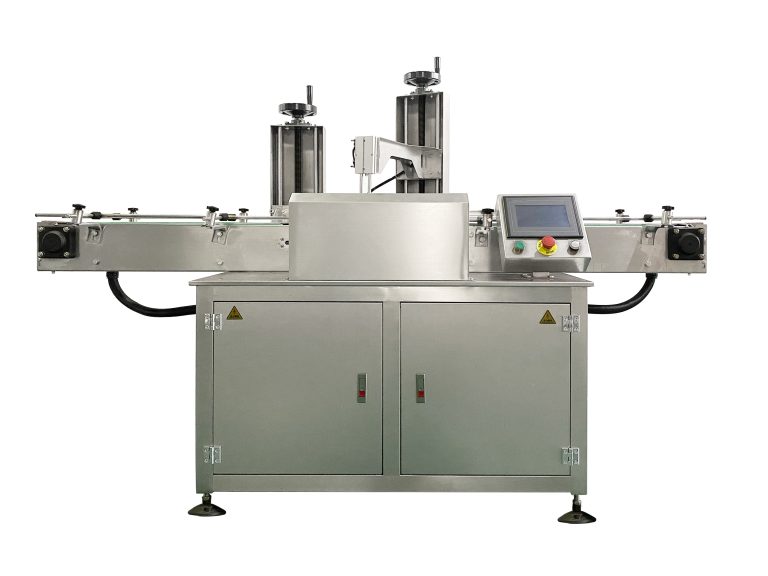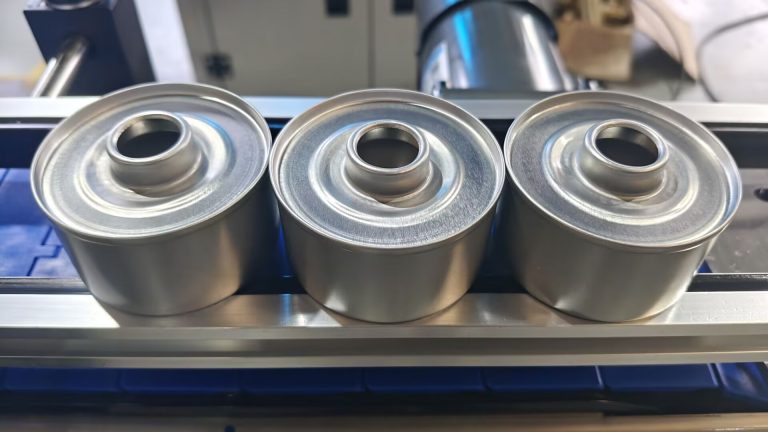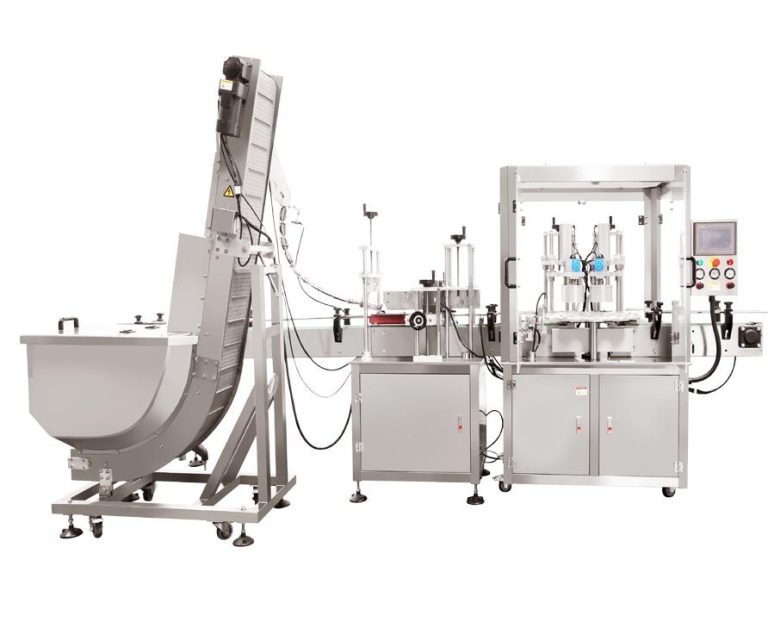Table of Contents
Introduction
In the realm of packaging, tin cans have long been a staple for preserving and storing various products. Semi – auto tin can seamer machines play a vital role in this process, offering a blend of manual control and automated functionality. This article delves into the features, benefits, and applications of these machines, providing a comprehensive understanding of their importance in the packaging industry.
Features of Semi – Auto Tin Can Seamer Machines
1. Adjustable Seaming Parameters
One of the key features of semi – auto tin can seamer machines is the ability to adjust seaming parameters. Operators can modify factors such as seaming pressure, the number of seaming revolutions, and the speed of the seaming process. This adjustability allows the machine to handle different types of cans and lids, ensuring a proper and consistent seal regardless of the product being packaged.
2. Sturdy Construction
These machines are typically built with a robust frame and high – quality components. The use of durable materials like stainless steel ensures longevity and resistance to wear and tear. The sturdy construction also helps in maintaining the accuracy and precision of the seaming process over time, reducing the need for frequent repairs and replacements.
3. User – Friendly Interface
Most semi – auto tin can seamer machines come with a user – friendly interface. This may include simple control panels with clearly labeled buttons and indicators. Operators can easily understand and operate the machine, even with minimal training. The interface also allows for quick adjustments and monitoring of the seaming process, enhancing overall efficiency.
4. Can and Lid Compatibility
Semi – auto tin can seamer machines are designed to be compatible with a wide range of can sizes and lid types. Whether it’s small, medium, or large cans, and different styles of lids such as easy – open lids or standard screw – on lids, the machine can adapt to the specific requirements. This versatility makes it suitable for various industries with diverse packaging needs.

Benefits of Using Semi – Auto Tin Can Seamer Machines
1. Cost – Efficiency
For small and medium – sized businesses, semi – auto tin can seamer machines offer a cost – effective solution. They are generally more affordable than fully automated machines, both in terms of the initial purchase price and ongoing maintenance costs. This allows companies to invest in high – quality seaming technology without breaking the bank.
2. Quality Assurance
The semi – automated nature of these machines allows for greater operator control, which in turn leads to better quality assurance. Operators can closely monitor each seaming operation, ensuring that the lids are properly sealed and there are no defects. This results in a higher – quality end product and reduces the risk of product spoilage or leakage during storage and transportation.
3. Flexibility in Production
Semi – auto tin can seamer machines provide flexibility in production. They can be easily adjusted to handle different production volumes, from small – batch runs to larger orders. This is particularly beneficial for businesses that produce seasonal or limited – edition products, as they can quickly switch between different can and lid combinations without significant downtime.
4. Reduced Labor Requirements
While these machines do require some manual input, they still reduce the overall labor requirements compared to fully manual seaming processes. The automated seaming functions handle the most critical and time – consuming aspects of the operation, allowing operators to focus on other tasks such as loading and unloading cans. This leads to increased productivity and efficiency in the packaging process.
Applications of Semi – Auto Tin Can Seamer Machines
1. Food Industry
In the food industry, semi – auto tin can seamer machines are widely used for packaging various food products such as canned fruits, vegetables, soups, and meats. The airtight seal created by the machine helps to preserve the freshness and flavor of the food, extending its shelf life. Additionally, the ability to handle different can sizes makes it suitable for both large – scale food manufacturers and small – batch artisanal producers.
2. Beverage Industry
Beverage companies also rely on semi – auto tin can seamer machines for packaging carbonated drinks, energy drinks, and canned juices. The precise seaming process ensures that the carbonation is retained in the cans, providing a better consumer experience. These machines can also handle the unique requirements of beverage cans, such as the need for a secure seal to prevent leakage.
3. Chemical and Pharmaceutical Industries
In the chemical and pharmaceutical industries, tin cans are used to package various products such as paints, solvents, and medications. Semi – auto tin can seamer machines are essential for creating a tight seal that protects the contents from contamination and ensures product integrity. The adjustable seaming parameters allow for customization based on the specific requirements of these industries.
4. Cosmetics and Personal Care Industries
Cosmetics and personal care products, such as creams, lotions, and powders, are often packaged in tin cans for their durability and aesthetic appeal. Semi – auto tin can seamer machines can create a professional – looking seal that enhances the overall presentation of the product. The ability to handle different lid types, such as flip – top lids or screw – on lids, adds to the versatility of these machines in this industry.
Conclusion
Semi – auto tin can seamer machines offer a range of features, benefits, and applications that make them an indispensable tool in the packaging industry. Their adjustable parameters, sturdy construction, and user – friendly interface provide a reliable and efficient way to seal tin cans. The cost – efficiency, quality assurance, and flexibility they offer make them suitable for businesses of all sizes and across various industries. Whether it’s food, beverages, chemicals, or cosmetics, these machines play a crucial role in ensuring the proper packaging and preservation of products.






